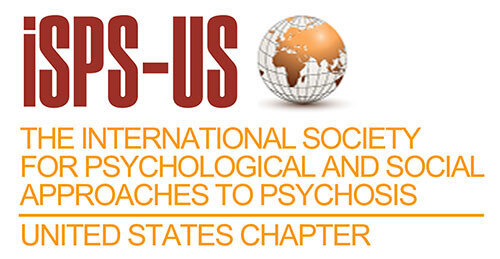
Responding to a Call to Action from our friends at the Alliance of Rights and Recovery, ISPS-US has urged New York legislators to reject proposed expansions of involuntary commitment in the state budget. Research shows forced treatment leads to poor outcomes, including increased mortality and crisis-driven care. Instead, we’re calling for investment in voluntary, community-based supports like Housing First, peer support, therapy, and mental health first responder teams — evidence-based approaches that promote dignity and long-term recovery.
Join ISPS-US to be part of the movement for rights-based, compassionate alternatives and push back against coercive policies nationwide.
Read our full letter below.
Hello,
I am writing on behalf of the International Society for Psychological and Social Approaches to Psychosis - U.S. Chapter (ISPS-US), a professional organization that includes clinicians, researchers, peers, and family members all committed to advancing psychosocial approaches to psychosis. We strongly urge you to reject the Administration’s proposal to expand involuntary inpatient and outpatient commitment (HMH Part EE) in the final FY 2025-26 State Budget. Instead, we call on the State of New York to invest in evidence-based, voluntary services that promote recovery, stability, and dignity.
The proposed expansion will cause additional harm to New Yorkers, particularly those experiencing homelessness and mental health challenges, by perpetuating policies that involve police in making "mental hygiene arrests" and initiating involuntary treatment. This approach not only risks further trauma but also overlooks the root causes of these issues and reinforces the very problems it seeks to address. Research indicates that involuntary commitment actually increases mortality rates and contributes to more contact with emergency services, leading to a cycle of crisis-driven care, rather than promoting long-term recovery(1).
Rather than expanding involuntary commitment, we urge New York to prioritize funding for proven, community-based interventions that effectively support individuals facing mental health crises. We advocate for increased investment in the following:
- Housing First programs that provide stable housing without preconditions.
- Therapy including psychological, occupational, and creative therapies
- Supported Housing that integrates mental health services with housing assistance
- Intensive and Sustained Engagement Teams (INSET) that offer voluntary, person-centered mental health support
- Peer Support initiatives that empower individuals through shared lived experience
- Coordinated Specialty Care programs extended to adults, ensuring early and effective intervention for those experiencing psychosis
- Crisis Alternatives including mental health first responder teams
These approaches are effective –the World Health Organization’s recently released Guidance on Mental Health Policy and Strategic Action Plans (2) specifically highlights the success of programs such as Housing First, emphasizing the need for mental health systems to address social determinants and prioritize rights-based, non-coercive practices over forced treatment.
New York now has the opportunity to lead with this evidence-based, compassionate approach, rather than relying on coercion.
Both the State Assembly and Senate have already rejected the proposed expansions of involuntary commitment in their one-house budget proposals, opting instead to invest in voluntary, community-based supports. We encourage you to ensure that the final budget reflects this commitment and avoids policies that perpetuate trauma, coercion, and the criminalization of mental health.
Thank you for your time and attention to this critical issue.
ISPS-US
1. Welle, P, Montana, E, Marlton, N, & Zhan, S (2023) Analysis of Allegheny County’s Involuntary Hospitalization (302) Program. Allegheny County Department of Human Services. https://www.alleghenycountyanalytics.us/wp-content/uploads/2023/11/23-ACDHS_Involuntary-Hospitalization.pdf
2. World Health Organization (2025) Guidance on mental health policy and strategic action plans: Module 3. Process for developing, implementing, and evaluating mental health policy and strategic action plans. https://www.who.int/publications/i/item/9789240106833
